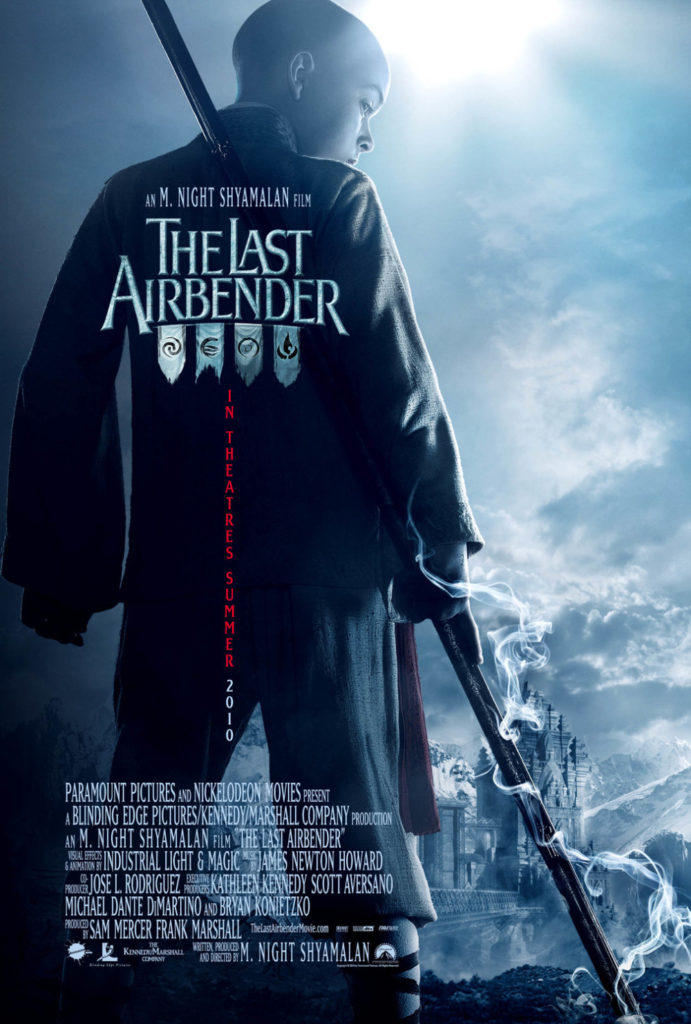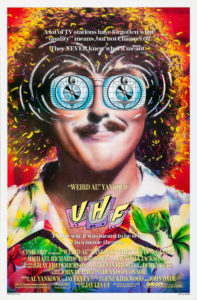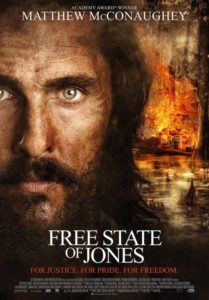Fandom is a funny thing. In theory, a group of people who all share a love for a work of art or pop culture would be united, with each person embracing whatever new film, show, book, or album they find with the other fans. I think we’ve all discovered by now that this isn’t the case. A broken base amongst any group of fans is not just expected these days, it’s anticipated to the point that the arguments can be more entertaining than the actual product. The vocal responses to recent entries in franchises such as James Bond, The DCU, the MCU, Harry Potter, and most infamously, Star Wars, are only a few examples, but they are enough to show that people won’t only argue about whether something is good or bad, they’ll split into countless groups arguing about what makes it good or bad.
Avatar: The Last Airbender, the animated series from Nickelodeon, is no exception. As beloved as this show is, fans will still debate to this day about the best character, the best season, when (if ever) it declined in quality, if certain villains deserved redemption, if the sequel series is a worthy follow up, etc. However, in the summer of 2010, the rare moment came when an entire fandom stood relatively united. Indeed, when the fans of the celebrated series finally got a chance to witness the live-action adaptation directed by none other than M. Night Shyamalan, they broke into only two groups: the ones who said “I hate this movie,” and the ones who said “Movie? What movie?”
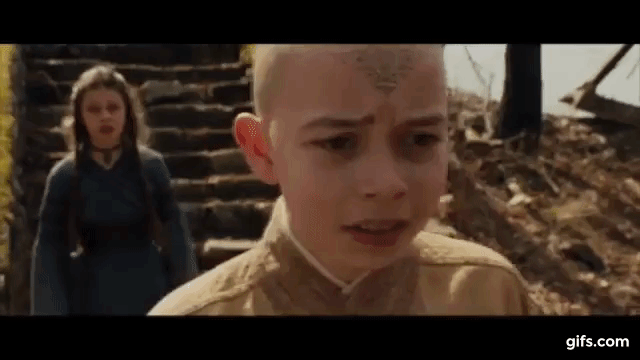
The Last Airbender has gained a reputation as one of the worst attempts at a major blockbuster ever made. This is not an understatement. Having recently started bingeing the show and becoming a fan, I decided, along with my long-suffering wife, the view the movie after finishing the first season, knowing full-well it’s reputation, in order to see how poor it could be. It’s bad. Really bad. But it’s the kind of bad that makes you wonder why it was made in the first place. It wasn’t because of any clear passion for the source material due to how dull it is. Was it a cash-grab? I can’t imagine, with the amount of money spent on this (supposedly around $300 million), that anyone thought this would make a huge profit. Perhaps it was simply hubris, thinking they could condense 20 episodes into a movie and still be compelling. Whatever the goal was, they failed epically.
For the uninitiated, the story of the series and film has a long backstory. The people of this world are split into four different nations based off the four elements: fire, water, earth, and air. In each, some people have the power to control their nation’s element. Into every generation a person with the ability to master all four elements in reincarnated: The Avatar. One hundred years before the story begins, the last Avatar disappeared, and as a result war has engulfed the world. The Fire Nation has invaded most of the others, believing themselves destined to control them. One day, Water Tribe siblings Katara and Sokka find the Avatar, a young boy named Aang, in an iceberg. When they realize who he is, they join him to travel the world and complete his training so he can bring balance to the world. But the journey becomes more difficult when Zuko, a banished Fire Nation prince, learns of Aang and hunts him, believing that capturing the Avatar will restore his honor.
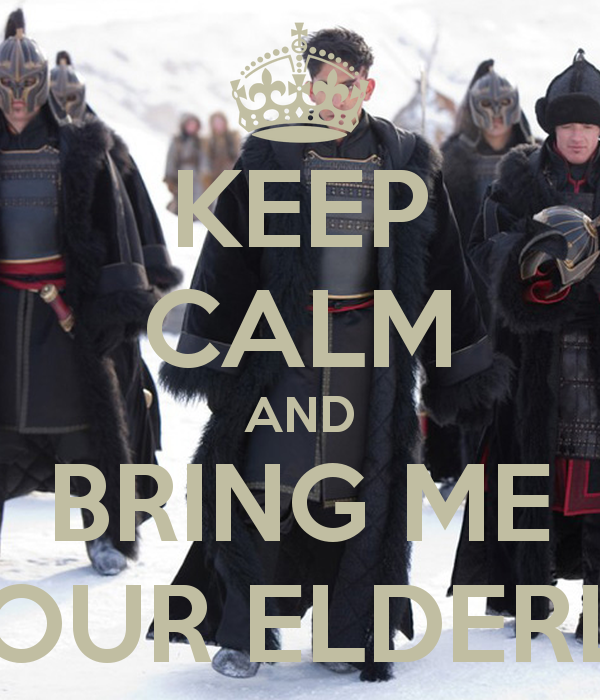
That’s the plot of the first season on the show, as well as the film which adapts it. The general story remains the same. Events happen in the same order, occasionally in the same way, and everything starts and ends in the same place. So, why did the movie fail? Well, it fails as an adaptation. Adapting something to the screen can be a daunting process to be sure. What works on TV can fall flat in a movie. Changes were always going to be made, and not everyone was going to be happy about that. What’s baffling here is that Shyamalan seems to have no idea what works in a live-action movie format. He condensed a 20-episode arc into a 100-minute film and decided that changes needed to be made to characters’ personalities, name pronunciation, the way their powers work, and chose to convey almost everything in clunky exposition. He also removed the humor and vibrant locales, replacing them with blank brooding and muted grittiness, and chose to keep the basic cliff notes outline of a story, as if he just read the Wikipedia page. Shyamalan took a joyful and imaginative series and took out the joy and imagination.
As a sign of things to come, the movie opens with an overlong text crawl explaining the backstory, which I guess is supposed to resemble an epic like Star Wars, but instead reminds one of Uwe Boll’s disastrous Alone in the Dark adaptation. We then meet this world’s version of Katara (Nicola Peltz, who owes whatever career she’s had to nepotism) and Sokka (Jackson Rathbone, spending every scene looking angry about being in this). Katara splashes Sokka with her water-bending, and they find Aang (Noah Ringer, a first-time actor, and it shows). After what can generously be described as character introductions, Zuko (Dev Patel, the only actor whose presence doesn’t make the movie worse) finds them and begins his pursuit.
Already most fans of the show would notice problems. First, the characters haven’t just had their personalities changed, they all have the same personality: troubled and brooding while staring blankly into the distance. Gone is the optimistic and energetic Pollyanna Aang fans loved. The comically serious Katara who acted as a team mom is nowhere to be found. The hilarious and hot-headed Sokka has become the complete opposite of his original self. Only Zuko, as the bitter and determined villain and eventual anti-hero, keeps any of his original characterization, but lacks the hidden depths that made him sympathetic.
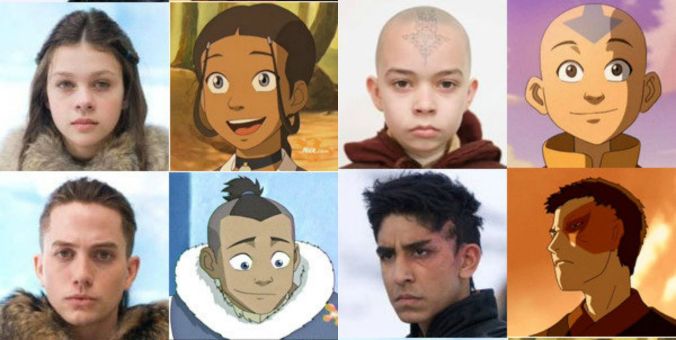
Infamously, even Aang and Sokka’s name pronunciations were changed to “Ong” and “Soh-ka” out of either artistic license or hubris. Zuko’s kind and wise uncle, Iroh, has also had his name changed. Even more frustratingly, however, is the film’s presentation of bending powers. Shyamalan made the decision to weaken the firebenders by making it so they can only manipulate existing fire, instead of drawing on the heat of their bodies and the air, apparently believing they were too powerful. Considering that was supposed to be a large part of how they conquered the world, that’s a problem. To compensate, characters speak of technology the Fire Nation has, but we rarely see it. The other elements have also been made weaker. Earthbenders who could reshape entire valleys at will now do long and arduous katas to move a rock that they could have just picked up and thrown. Most insultingly, master waterbender Katara is now useless, barely able to last thirty seconds in a fight. Important plot points are either rushed through or cut completely, making the (fortunately cancelled) follow-ups impossible to adapt.
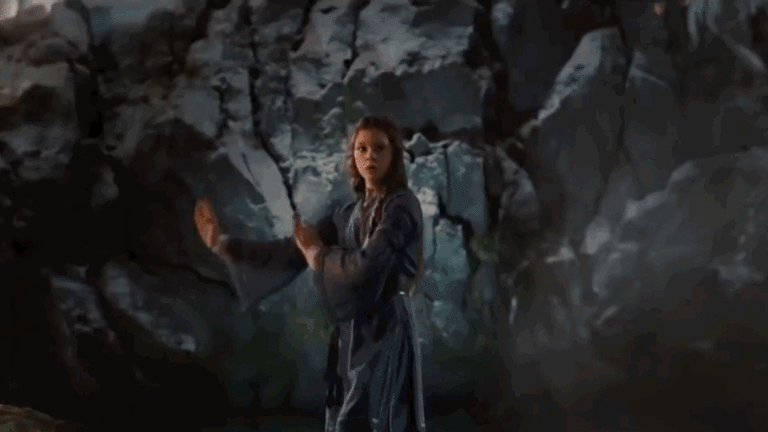
The Last Airbender is not just a failure as an adaptation. Many filmmakers have made huge changes when adapting from source material. Films such as “Willy Wonka and the Chocolate Factory,” “The Shining,” and “Mary Poppins” are all quite different from the books on which they are based, but there is nothing wrong with those movies. “The Last Airbender” would fail even if it was an original idea. As a result of the characters having no distinct personalities, it’s impossible to care about them or their mission. Lip service is paid to the heroes becoming a family, but it comes out of nowhere and they are never shown bonding. No one has any chemistry with anyone, and everyone says their lines in the same monotonous way. As you know, telling other characters what they already know is the worst kind of exposition, and it’s done several times. Instead of character development, people introduce themselves and narration explains what they’re thinking. The villains are all the same smug sort of evil. There’s no sense of worldbuilding. The film just jumps from one poorly defined location to another with little sense of geography or story progression. Even the camera work is baffling. Close-ups are shot at truly bizarre angles, cutting off parts of the actors’ heads. Fans would be outraged. Casual moviegoers would just be confused until they get bored to sleep.
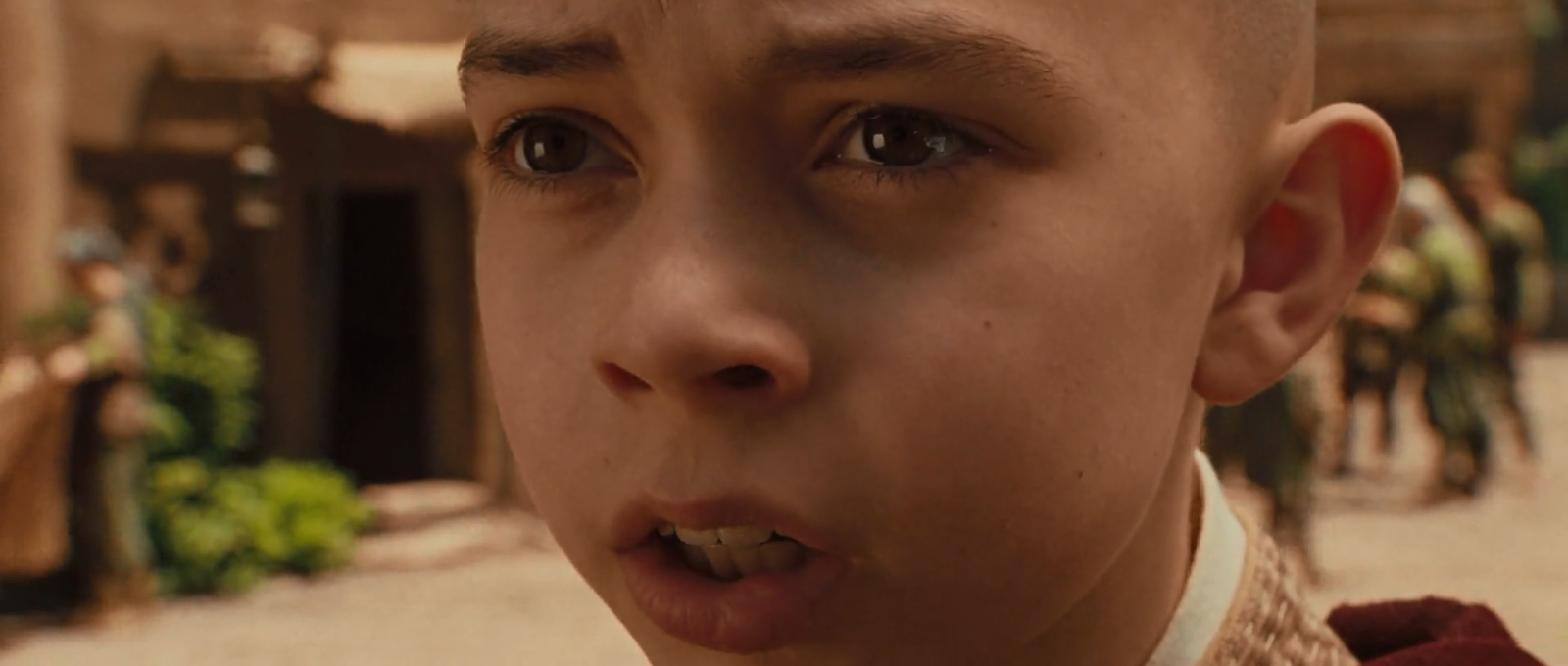
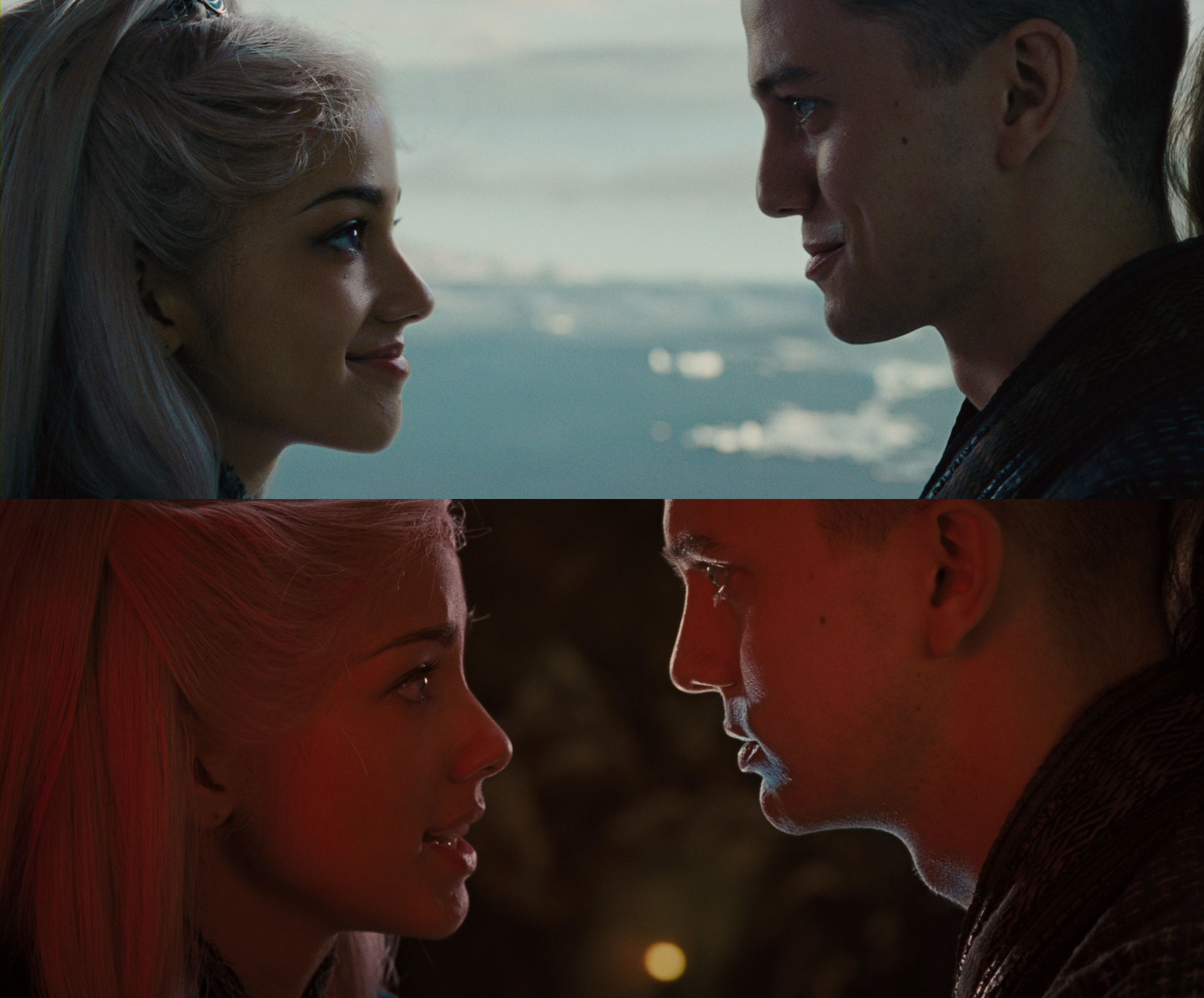
Some may be able to live with all this if the action is decent. Seeing all the elements being controlled via CGI was the big selling point of this film after all. They even ponied up a bunch of dough to convert it into 3D (Which I cannot speak to the quality of, as I only watched this on Netflix, and not in a theater in 2010, but by all accounts it was awful). Even on that front, the movie is a disaster. The worst example is the revolt in the earth-bender prison. Let’s take this one step-by-step. In the series, the prison was set on a ship in the middle of the ocean, where there was no earth with which to fight back. In movie-land, they are imprisoned on solid ground, which as stated on TV Tropes, is like giving all your prisoners a bunch of assault rifles with unlimited ammunition, and then…just not using it for some reason. Even if the action were perfectly staged, this would be an unforgivable plot hole.
The action is not perfectly staged. Instead, it is a perfect example of how not to do a one-take fight scene. The camera moves in a circle, supposedly to show the space and complex choreography, but instead betrays the staging. The soldiers, who should be acting on this prisoner revolt, just stand in the background, waiting for their cues. Several earth benders perform some impressive martial arts, but all for the sake of moving a single small rock. The main characters just stand there, looking around as if waiting for some sort of direction. What should be a major moment of triumph is ruined with thanks to poor direction and little build-up. The prisoners break out as quickly as the prison itself is introduced, taking away the catharsis that should be felt. The scene is only there because it was in the show, yet the relevance is gone. A later fight isn’t much better, when Zuko breaks Aang out when captured. As before, it’s done in extended takes, but numerous soldiers just stand in the background, attacking only a few at a time like an episode of Power Rangers. No excitement, no suspense. You only wait for it to end.
That’s a good way to put it, I think. The Last Airbender is not a movie you watch, it’s a movie you wait to end. No character, barely a story, zero soul. The only feeling you may have by the end is just numb.
Grade: D-
I only don’t give it an F because it’s not entertainingly bad like some truly classic bad movies. I honestly can’t think of anything to recommend here. The direction is terrible, the acting is terrible, the script is terrible. The action is unimaginative at best. The effects are not awful, but nothing that hasn’t been done better. The score by James Newton Howard is decent, but you can just listen to that on its own and pretend it’s from a better movie. There are plenty of other complaints that I have, but this review is already too long. I don’t think I have ever enjoyed a major release less than this one. Supposedly around thirty minutes were cut in order to squeeze in more screenings and to make the 3D conversion feasible. Editing is obviously an important part of a film, and there have been examples of recut films being vastly different and even better than their theatrical releases. Considering the quality of the scenes kept in, I doubt that would be the case here; at best, the deleted scenes would probably clear up a few plot holes and smooth out some scene transitions. Otherwise, it would just be longer. It’s probably moot as there will likely never be enough interest to justify a director’s cut release. I love Avatar: The Last Airbender. I have finished the show, I’ve started reading the comics, and will at some point watch the sequel series. The Last Airbender movie, on the other hand, I doubt I will ever watch again.

